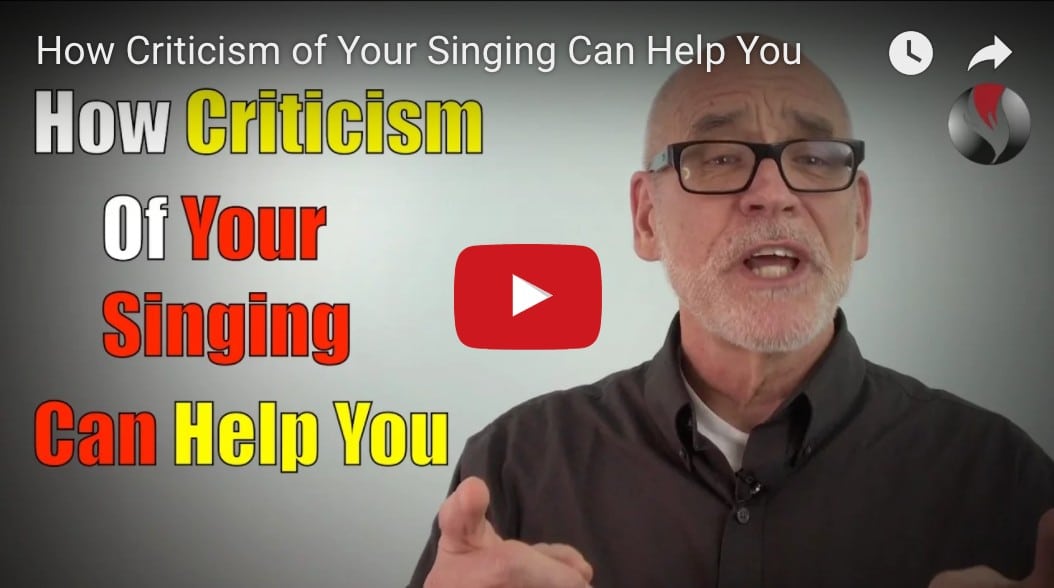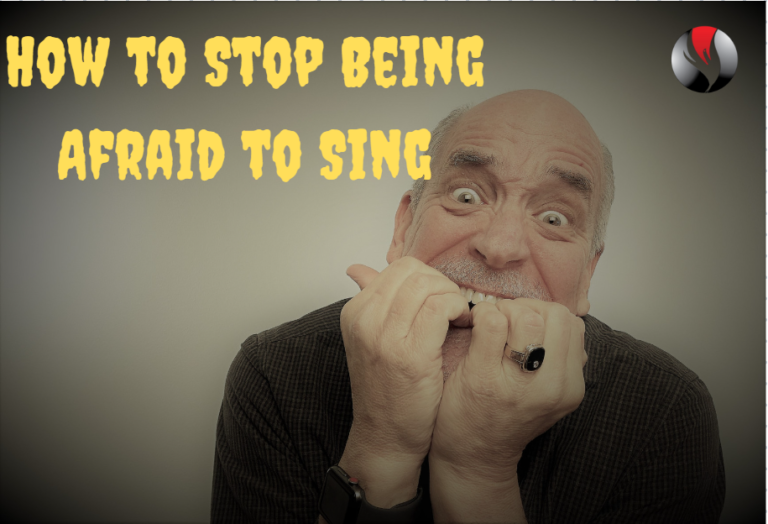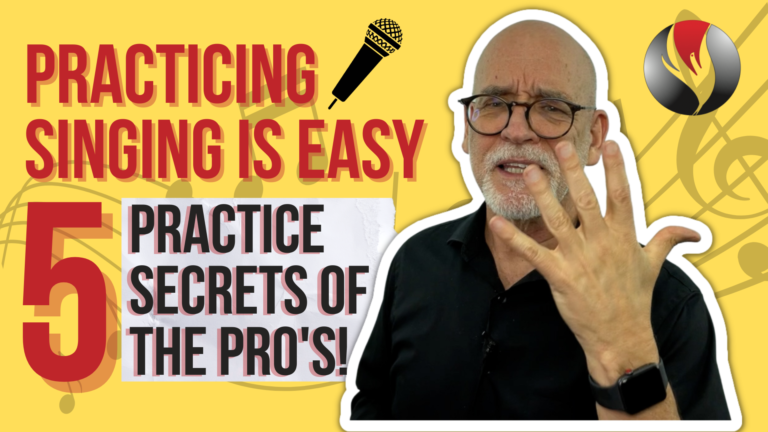This video is about how criticism of your singing can help you!
During a lesson I took from Seth Riggs years ago, I really excelled doing the exercises, but when it came to singing songs, my larynx went up, I splatted vowels, and I pulled my chest voice. I felt terrible.

He looked at me and said, “I don’t know who’s letting you do that!”
Inside this video, I’ll tell you what happened, how it helped me and how criticism can help you!
“I don’t know who’s letting you do that” was a way of telling me that although past teachers let me get by with poor singing, he was not.
We immediately started at the beginning of the song and began correcting vowels and other things with my singing.
I was very sad because I had done so well with the vocal exercises but flopped when singing the song.
But it was exactly what I needed. In fairness, I’m sure my other teachers had worked to help me get it right, but it didn’t stick. When I left this lesson, I was determined to work hard to make improvements. The next time I sang for Seth I was much improved.
How Criticism of Your Singing Can Help You
How do you take criticism? Do you resist it? Do you bristle when it’s given to you even kindly with your improvement as the motivating factor?
Criticism’s hard for me. I don’t like it. And if it’s not done well, I have a hard time benefiting from it.
If you resist criticism about your singing that’s constructive and accurate, you effectively hold yourself hostage to old habits.
Here’s how to benefit from criticism of your singing.
I’m not saying you need to listen to the critic on the street, or the reviewer, or even your friend. However, you pay your experienced and qualified voice teacher to tell you the truth. If not, how will you get better? How will you ever improve?
First, then, is welcome your teacher’s feedback and listen carefully to what is said to help you.
To get the most from your lessons, record each lesson and keep it in a playlist and use it for years to come. Listen carefully to the lesson and maintain an open mind that your teacher’s feedback will help you improve.
Second, be humble. If you aren’t humble, you aren’t teachable. If you aren’t teachable, you won’t progress as rapidly as possible. Don’t resist the criticism…welcome it. Implement the suggestions to make you better.
Third, don’t expect that you’ll be capable of immediate implementation of the feedback. You often need time to develop your new vocal coordination. Changes in the body take time both physically, emotionally and neurologically!
Fourth, be patient. The voice often takes longer because we think change should be immediate and permanent. We get impatient and move on to something else before the new approach has a chance to work.
Fifth, trust that your teacher can hear things you can’t. Your teacher can hear tension, strong head voice or improvement even when you can’t.

I’ve greatly benefited by the skilled outside ear of excellent singing teachers. They hear what I can’t and it has been the key to real progress in my voice through the years.
If you liked this video, give it a thumbs up, subscribe and share it with a friend. Please comment below and tell me how you’ve benefited from criticism.
Vocal Type
Criticism can lead to improvement. Knowing your vocal type is also a great way to improve your singing voice. Your vocal type is not whether you are soprano, alto, tenor or bass. Your vocal type is what you tend to do when you sing higher through the bridge of your voice.
Visit PowerToSing.com and take the vocal test, which I call the PowerTest. Take the quiz and discover your vocal type. Go to the Knowledge Center and watch the videos about your vocal type. Download the free exercises for your vocal type and start improving your voice immediately.
I’m Chuck Gilmore with Power To Sing. You can sing higher with beauty, confidence and power. I’ll see you inside the next video.








Responses